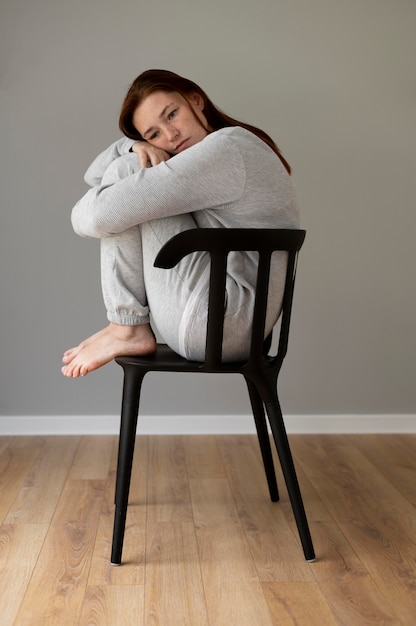
The senior years can be an enriching time for many, but they also come with increased mental health risks like depression. COVID-19 has amplified these risks, especially for older adults, leading to more cases of depression and anxiety.
To support a senior dealing with depression, you can explore music therapy, encourage social interactions, and connect them with a counselor. However, recognizing the signs of depression in a loved one can be challenging.
Geriatric depression refers to a mental and emotional disorder affecting older individuals. Unlike what some may think, ongoing depression is not a normal part of aging. Older adults are particularly prone to subsyndromal depression, which may not meet the criteria for major depression but can escalate if not treated.
Depression in older people diminishes their quality of life and even increases the risk of suicide. Its causes are multifaceted, involving genetic, biological, social, and psychological elements. In older adults, specific triggers include transitioning from work to retirement, confronting mortality, isolation, and limited mobility. Health declines, the loss of loved ones, and chronic medical conditions also elevate the risk.
Numerous medical conditions can either directly or indirectly lead to depression in older adults, such as stroke, cancer, diabetes, and Parkinson’s disease. Conditions like vitamin B12 deficiency, thyroid disorders, dementia, and multiple sclerosis are also linked with depression. Additionally, many medications, including those for blood pressure, beta-blockers, tranquilizers, sleeping pills, and cholesterol-lowering drugs, can cause or worsen depression.
While depression symptoms are consistent across all ages, they are often harder to spot in older adults. Relatives might mistaken these symptoms as normal signs of aging. Signs of depression may include:
If an older person is dealing with depression, there are steps they can take individually or with support from loved ones. Engaging in new activities, adapting to change, and staying socially and physically active are crucial. It’s important for people of all ages to feel connected to others and their community.
The difficulty is that when someone is facing depression, even small tasks can seem daunting. If you have an older loved one who is depressed, start with simple steps. Invite them for a short daily walk or encourage them to participate in church activities or volunteer work. Isolation exacerbates depression, and lacking a sense of purpose can also worsen it.
Older adults need to understand that they still have a purpose, even if it differs from earlier stages of life. Professional depression treatment is just as effective in older people as it is in younger ones, though treatment plans should consider the unique challenges they face.
Identifying and addressing the root cause of depression is crucial, especially in older adults. They may not be the best candidates for antidepressants, so doctors may need to work closely with them to find the right approach. Often, therapy and lifestyle changes can be just as effective as medication without the side effects.
Therapy can be beneficial for older adults processing life changes, losses, and difficult emotions, and it also helps in developing new coping skills. Numerous support groups are available for dealing with illness, depression, or grief, providing opportunities for relationship-building, shared experiences, encouragement, and advice.